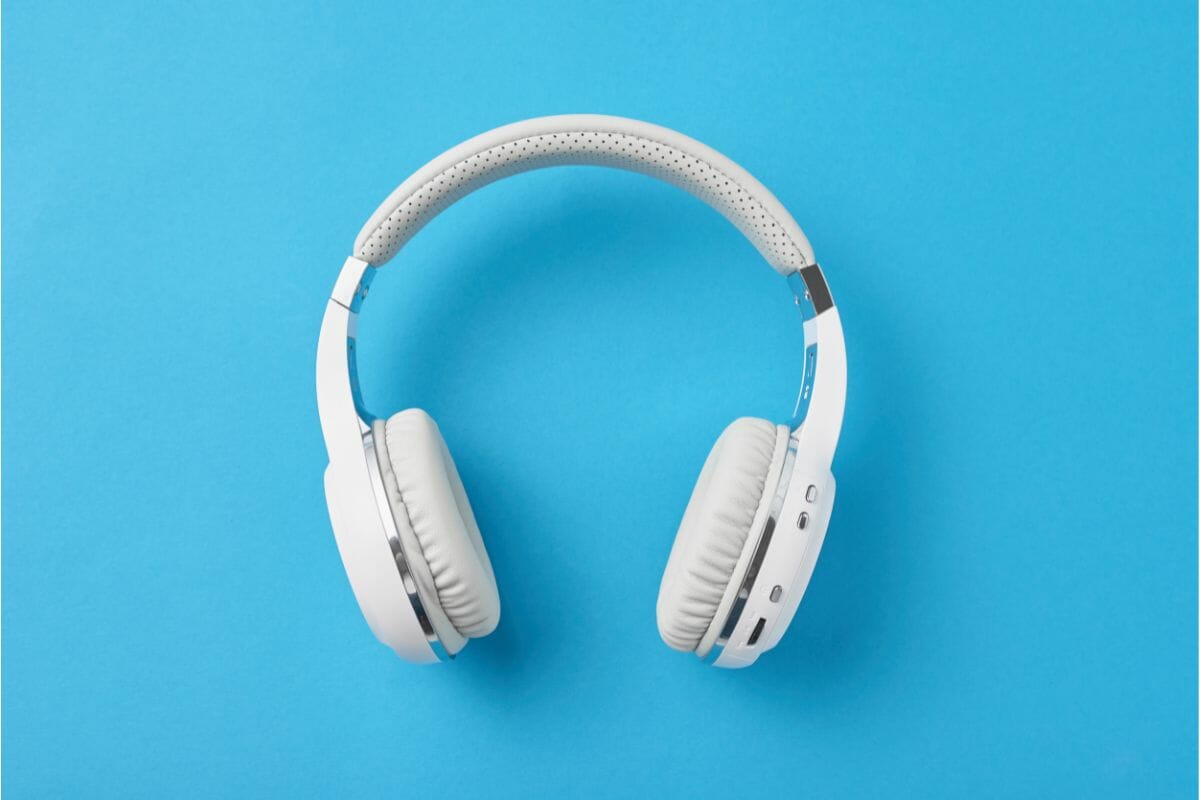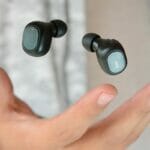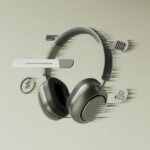Wireless and Bluetooth headphones are pretty much infamous at this point for suffering from audio cuts and stutters.
While they’re super convenient, they have their own set of issues that any user will likely encounter after enough time.

At best, it will be a few cuts that will frustrate you while trying to listen to music, but if it becomes frequent enough, it can be one of the most anger-inducing everyday annoyances out there.
Below I’ve compiled a list of the possible causes for your stuttering audio, and some ways to help fix or, at least, reduce the prevalence of the issue.
How To Improve Your Wireless Connection
All wireless headphones use Bluetooth to communicate with each other and function properly. Bluetooth is a sort of wireless signal sent between the source of the audio and your headphones, and that signal can be interrupted under certain circumstances.
Keep Close To The Audio Source
Bluetooth signal only has a fairly limited range, and the farther away you are from the source of the audio signal you’re listening to the spottier your audio is going to sound.
How far that exactly depends on the type of Bluetooth class your device uses, split into Class 1, 2, and 3. Class 1 has the longest range of between 130-330 ft, but most headphones and speakers fall into either 2, with a range between 50-100 ft, or 3, with a measly 16-33 foot range.
You can check which class your device uses in its manual or online, but it’s generally best practice to keep as close to the audio source as you can while using wireless devices for the best quality audio.
While this may seem obvious, there’s more to this kind of interference than you might think. There’s something called cross-body interference, which you may experience if you keep your audio source in your pocket.
Essentially, Bluetooth signals struggle to pass through certain substances, including the human body!
So you may experience audio issues in the headphone in your left ear if you’re keeping your audio source in your right pocket, for example.
Keep Your Battery Charged
This actually has nothing to do with the wireless connection strength, but it’s easy to mistake the stuttering resulting from a low battery for that of a weak connection.
Before you start trying to figure out what’s wrong with your headphones, make sure you check to see they’re not low on battery, as that can cause its own audio issues as your headphones struggle to stay powered.
Make sure to use fully charged headphones when searching for issues to avoid any complications.
Listen To Downloaded Content Rather Than Streaming
Streaming content to wireless headphones tends to cause audio issues, and you’ll likely get a much better connection if listening to music or videos already downloaded to the audio source.
You can quickly test this yourself by downloading a song to your audio source and listening to it to check for any further audio issues.
If you don’t discover any with downloaded content but do with streamed content, then your issue could be a poor internet connection, or there is too much interference to the signal.
If you want to solve this, you’ll have to keep your audio source closer to your wireless headphones or avoid placing too many other devices near your audio source or headphones (see also ‘How To Reset Skullcandy Wireless Headphones‘).
Bluetooth headphones (see also ‘Why Are My Bluetooth Headphones So Quiet?‘) use the same radio signals as many other devices, so they can interfere with each other and create delays or stutters in connection.
This can be Wi-Fi routers, which are known to cause severe interference, to more mundane items like microwaves and exposed cables.
Frequently Asked Questions

How Can I Improve My Bluetooth Signal Strength?
There aren’t many ways to increase your signal strength other than keeping your devices close together and away from interference, but if you’re really concerned about your connection strength or want to stay connected to audio sources from much further away, you could consider investing in a Bluetooth router.
A Bluetooth Router is very similar to an internet router that you’ll likely have in your home but supports Bluetooth signals instead of internet signals.
This device will allow you to extend the range of your wireless headphones significantly, while minimizing interference.
They’ll also allow you to manage multiple devices at once, which can come in handy if you have a lot of wireless products.
What Interferes With Bluetooth Connection?
Anything that produces IMF radio signals can interfere with your Bluetooth connection. A lot of things can produce these, some of which are completely unexpected.
Even certain light bulbs produce a small amount of IMF signals.
As a general rule, the biggest causes of strong interference in Bluetooth connection are devices like baby monitors, microwaves, and other wireless devices like wireless speakers.
Can Bluetooth Connections Travel Through Walls?
Bluetooth uses a type of radio wave to communicate, which itself is a type of electromagnetic radiation, and as such, is not impacted by most solid objects, including walls.
If your connection is being interfered with from behind a solid surface, it could mean there’s something in that surface that does interfere with radio waves, such as lead, or that another device is producing radio waves that are interfering with the connection.
While radio waves can travel through solid objects, however, they don’t travel as well through most liquids, so if you’re noticing a spotty connection, make sure there’s not an aquarium between you and your device!
In all seriousness, a more likely concern, in this case, is that your body or the body of someone else will interfere with the connection.
Humans are mostly water, so signals don’t travel well through them, which can lead to spotty connections when keeping audio sources in your pocket or otherwise close to your person.
I hope this guide helps you identify and fix the cause of your connectivity issues, but if they do continue to persist, it may be a deeper problem with the software or hardware of your wireless device, and you’d best take it to get looked at by a technician.
- How to use Bluetooth headphones with a treadmill Without Accidentally Inventing a New Dance Move - February 8, 2026
- Fitbit Battery Life Comparison: Which Tracker Won’t Abandon You First? - February 8, 2026
- How to connect two Bluetooth headphones to one device and avoid sharing earbuds like a caveman - February 7, 2026






